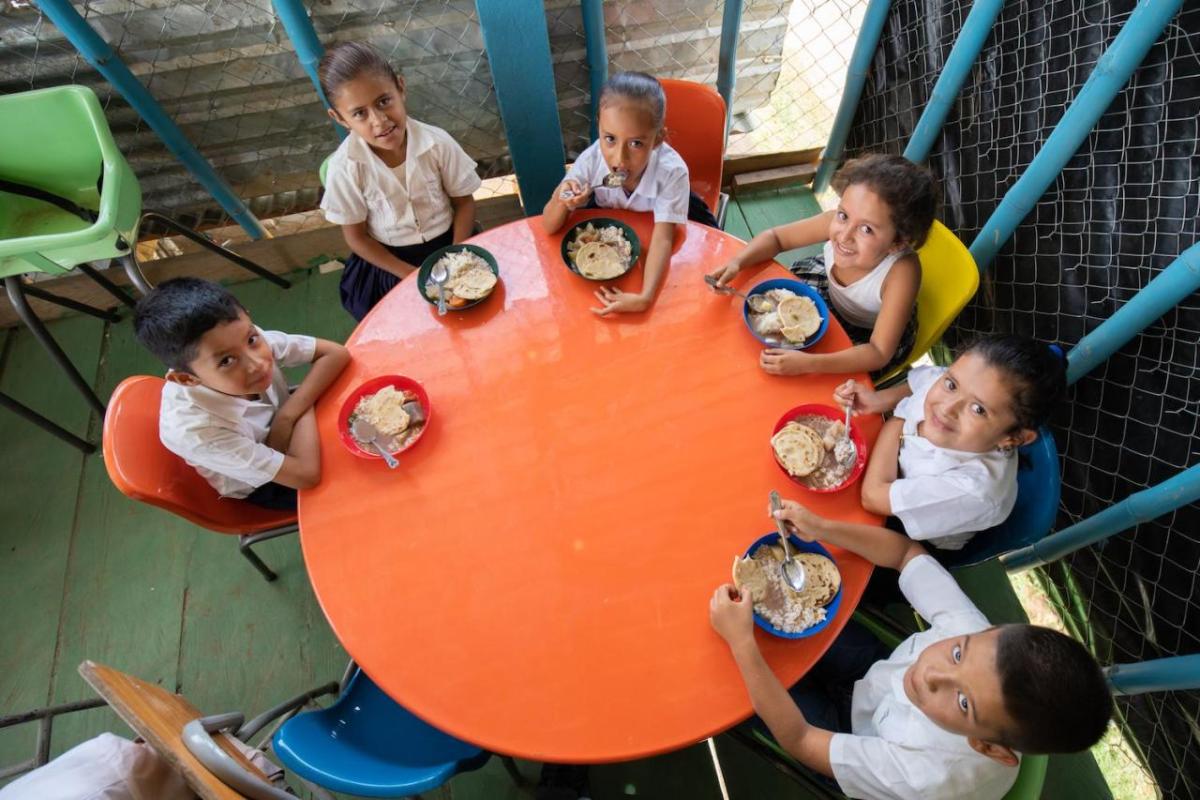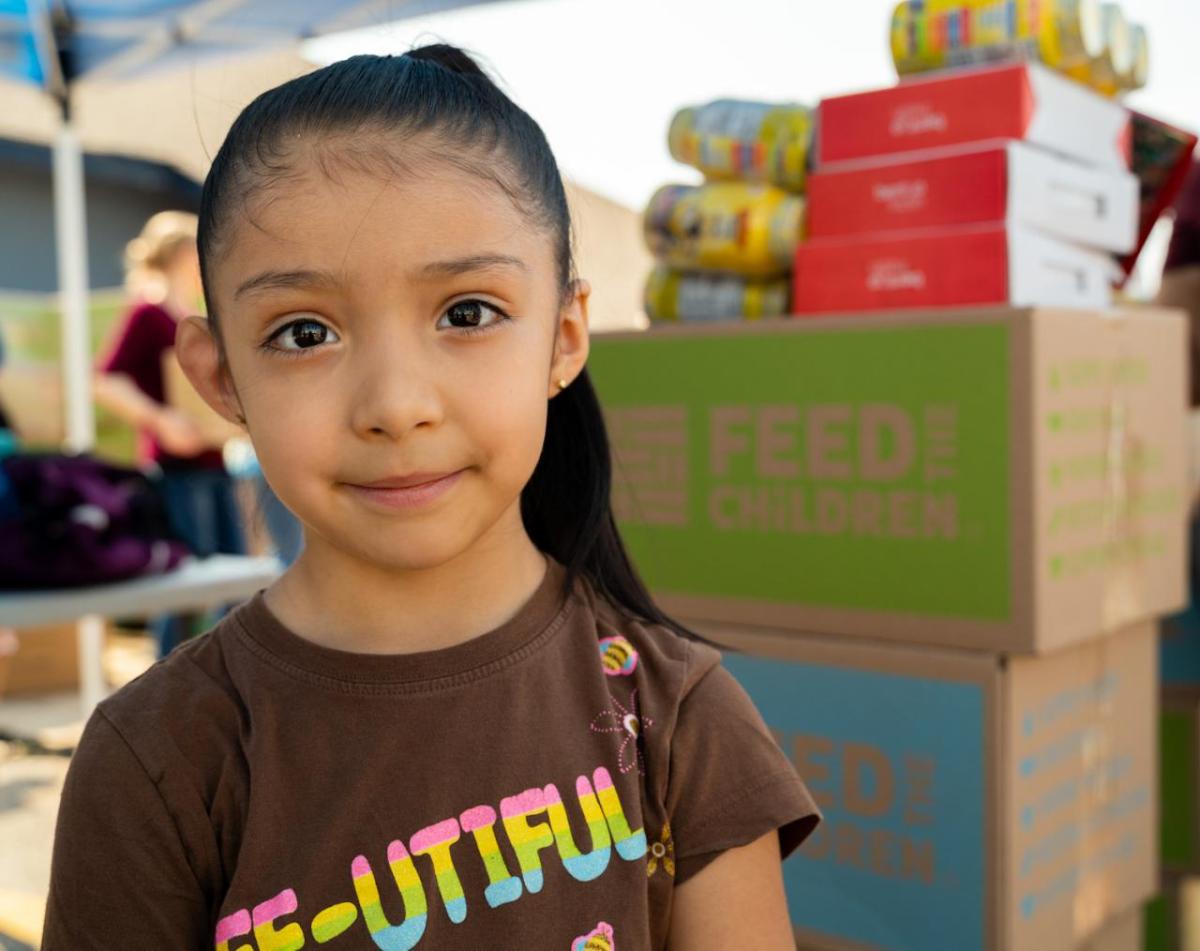How Corporate Partnerships Scale Health and Wellness Around the World
Words by Ellen R. Delisio
Originally published on TriplePundit
The U.S. has had a child hunger problem for decades. The COVID-19 pandemic turned that problem into a crisis.
Before the pandemic, 1 in 7 American children experienced food insecurity. The pandemic narrowed that ratio to 1 in 4 by the end of 2020, and nearly 1 in 6 families with children have struggled with food insecurity in the past year.
Hunger, clearly, is not just a U.S. problem. The U.N. Sustainable Development Goals (SDGs) call for an accelerated response to end hunger in all its forms by 2030. But the pandemic’s impact on economies and supply chains led to global hunger increasing for the first time in nearly a decade.
While many people are back to work and the economy is slowly growing again, agencies that support at-risk families are still trying to make up ground.
“Though we’ve seen improvement since the pandemic, too many are still struggling to keep food on the table as inflation wreaks havoc on families who are most vulnerable,” said Travis Arnold, president and CEO of Feed the Children, a 40-year-old anti-hunger organization that provides aid to children in the U.S. and abroad. In 2022, the agency distributed about 92.6 million pounds of food and essential items worldwide, benefiting more than 11.5 million people globally.
Corporate partnerships can help nonprofits and communities fight hunger
Nearly 10 percent of the global population, up to 811 million people, faced hunger, food insecurity and malnourishment in 2020, according to the Food and Agriculture Association of the United Nations.
More corporations have had to step up with supplies, service and partnerships. One successful pairing is the ongoing collaboration between Feed the Children, Herbalife and the Herbalife Nutrition Foundation. These organizations have partnered since 2019 through Herbalife’s global health and wellness initiative. According to Feed the Children, this collaboration focuses on expanding access to healthy food, identifying sustainable food resources and improving nutrition education, as well as raising awareness about the global hunger crisis.
Worldwide, Herbalife provides nutritional supplements to support thousands of children and families in the countries where Feed the Children works, Arnold said. “In the U.S., we have partnered for multiple community events, most recently in the Los Angeles area,” he told us. “Through our partnership, we have been able to provide both food and resources to thousands of families without life’s essentials across the country. These products help to supplement meals to thousands of families who are struggling to make ends meet.”
As important as the money and supplies Herbalife contributes is the educational material it produces and presents. “Herbalife not only provides a generous means for Feed the Children to scale our impact, but also meaningful ways to talk about the power of our work with new audiences,” Arnold said. The company’s registered dietitians and nutrition experts regularly provide educational materials, including meal and snack recipes, to pack into food donation boxes. The company has printed and delivered 48,000 recipe cards for Feed the Children food boxes.
In preparing recipes, Herbalife experts focus on creating meals that are accessible, affordable, nutritious and can be fun to prepare, according to the company. Recipes adhere to guidelines including the U.S. Department of Agriculture’s low-cost ingredients index and utilize foods often found in boxes that Feed the Children distributes. Bilingual recipe cards, in English and Spanish, also are available.
Scaling nutrition education worldwide
Herbalife and Feed the Children are looking to create additional joint education programs, including resources for teachers, teacher stores and nutrition education seminars for community partners.
In terms of Feed the Children’s own direct education efforts, it sponsors a support program for new mothers and pregnant women. Called Care Group, the program utilizes a peer-to-peer behavior change methodology: Facilitators work with pregnant women and new mothers directly to educate them about prenatal and postnatal nutrition, the benefits of breastfeeding exclusively for the baby’s first six months, and the types of supplemental foods to use until the child is 2 years old. “We help mothers learn how to select and prepare meals that provide the diversity of vitamins and nutrients growing bodies need,” Arnold explained.
Feed the Children also manages child-focused community development programs that focus on reducing hunger and malnutrition, teaching health, and promoting self-reliance in eight countries in Asia, Africa and Latin America.
And thanks to increased monetary and product contributions from corporate partners, Feed the Children expects to reach even more families in the U.S. and around the world this year, Arnold said.
The extra aid from Herbalife alone will supplement 300,000 meals and beverages for families in the U.S. The company has also increased its financial commitment to Feed the Children’s international program by $500,000 over two years. Globally, Feed the Children expects to expand programs designed to improve the health and nutritional profile of women and children. These resources include supplementary feeding supplies, deworming medicine and vitamin A supplements for children.
Partnerships are key to success
Corporate collaborations and other pairings are critical to the ongoing mission and success of Feed the Children and its fellow aid organizations, Arnold said.
“Partnerships are vital to success in every aspect of our work. Whether here in the U.S. or in communities around the globe, we cannot do this work alone,” he told us. “We are providing access to food and reducing the stigma around food insecurity through community events and resource rooms across the country. We are engaging communities in developing countries with education and empowerment. Our work with Herbalife is one example of how companies can make a significant contribution to a global issue through collaboration and true partnership.”
This work is needed now more than ever. With the price of basic necessities including food, energy and housing continuing to rise, the number of families straining to meet expenses are expected to increase in the coming months, Arnold observed.
“During the pandemic, we learned to be innovative in order to get food and essentials to families in their own communities,” he continued. “Many of these efforts continue today through our network of community partners, as well as through the generosity of our donors and corporate supporters. It takes all of us working together in order for these efforts to be successful.”
This article series is sponsored by Herbalife Nutrition and produced by the TriplePundit editorial team.
Images courtesy of Feed the Children and Herbalife Nutrition



